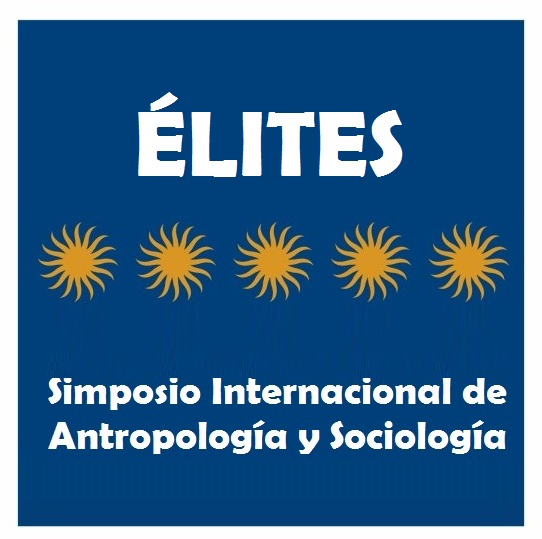Presentation
The anthropology of elites is an emerging field that challenges the disciplinary tradition of studying subaltern groups by instead turning its gaze toward those who hold power. While extensive research has been developed on ethnic minorities, migrants, or marginalized communities, the systematic analysis of elites—understood as groups that concentrate economic, symbolic, and political capital—has historically been relegated to other social sciences.

Anthropology, as comparative sociology, initially focused its attention on so-called primitive societies. Between the 19th and 20th centuries, capitalist expansion and colonial rule facilitated theoretical growth and the production of highly significant monographs in geographic contexts such as Africa, Asia, the South Pacific, Latin America, and Australia. Different national schools—from early French functionalism to British structural-functionalism and American neo-evolutionism—centered attention on their particular spheres of dominance and interest, including elements such as political organization, religion, economy, or kinship. This situation changed entirely after World War II, when the emergence of the United States as a new global power, the Cold War and the Soviet bloc conflict, the decline of the British Empire, the independence of former colonies, the first cracks in classical theoretical frameworks, and new epistemological proposals from the Global South, among other factors, led anthropology to lose, to some extent, its traditional field of study and begin shifting its focus toward the internal dynamics of capitalist Western societies. Specializations such as urban anthropology, kinship studies, economic anthropology, educational anthropology, and symbolic and cognitive anthropology also emerged, enabling sustained growth and expansion, as well as institutionalization through doctoral programs and university degrees.
One thing, however, remained constant: a certain interest in minorities, which replaced primitive societies as the focal point. In this way, anthropology maintained its study of the Other, though it no longer required traveling to distant territories to do so. Research thus emerged on small and not-so-small traditionally overlooked ethnic groups, isolated populations, migrants, practitioners of minority religions, and everyday dynamics of oppression, such as those related to gender or sexual diversity. All of these share a common element: they are social groups—some more familiar than others—that have historically been dominated or have escaped the normalization and homogenization imposed by capitalism and globalization. The same cannot be said for the dominators.
The anthropology of elites, therefore, has a much more limited trajectory. While it is true that numerous anthropological texts are linked to big men, chiefs, shamans, or kings—what we might call primitive elites—this is not the case when discussing contemporary and familiar realities. The gap left by anthropology has largely been filled by sociology, political science, and history. This is because these disciplines have focused on key aspects such as social stratification, the emergence of inequality, political systems, and the formation of political and economic power in the West. However, anthropology, with its unique characteristics, theoretical frameworks, and methodologies, has significant potential for the study of elites. According to Salverda and Abbink (2008: 3), an anthropological approach to elites “proposes studying and understanding them from within, attempting to trace the cultural dynamics and the formation of habitus (the internalized behavioral routines and social ideas of a defined social group) that perpetuate their dominance, rule, or acceptance.” Aspects such as their specific social relations, self-representation strategies, and unique cultural repertoires would serve as ideal domains for anthropological study.
Thus, starting from a definition of elites as a social group within a hierarchical society that claims or is granted power, prestige, or authority over others based on certain criteria and seeks to preserve and consolidate its status (Dogan, 2003), this International Symposium on the Anthropology and Sociology of Elites aims to focus attention on the study of elites, as well as all aspects related to them, such as the creation, maintenance, and consolidation of their social networks, their access to power and struggles to retain it, their specific composition and behavior, their capital (in the broad sense following Pierre Bourdieu, 2012), their identity and symbolic elements, their spaces of sociability and reproduction, the changes and transformations they undergo, or other specific aspects not mentioned here. Furthermore, the Symposium is not limited to the presentation of strictly anthropological or sociological research but, considering the social sciences as porous and interrelated disciplines, also welcomes contributions from political science, geography, social psychology, and other related fields.
Call for Papers
Papers must be submitted in the form of a summary/abstract of no more than 300 words, accompanied by a title and five keywords in Spanish, Catalan, and English. Authors should also include their full name, academic affiliation, and email address. Submissions must be sent by January 15, 2026, to the following address: simposio.antropologia.elites@uab.cat.
Authors whose papers are accepted will be notified within a month and a half of the submission deadline. They will then receive instructions and deadlines for submitting their full papers. Submission of the full paper will not be mandatory but may be eligible for inclusion in a special book to be published following the Symposium.
The Scientific Committee will accept paper proposals in Spanish, Catalan, and English. Please note that the Symposium will not offer simultaneous translation services. However, the Organizing Committee staff will facilitate the distribution of papers in the different languages ahead of the event to support participation and discussion. They may also occasionally assist with translation for questions and interventions.
The Symposium will take place the 11th and 12th of June of 2026
Bibliography
Bourdieu, P. (2012): La distinción. Criterios y bases sociales del gusto.Ed. Taurus.
Dogan, M. (ed). (2003). Elite Configurations at the Apex of Power. Brill Academic Publishers.
Salverda, T. y Abbink, J. (2008). Introduction: An Anthropological Perspective on Elite Power and the Cultural Politics of Elites, en J. Abbimk and T. Salverda (eds.), The Anthropology of Elites Power, Culture, and the Complexities of Distinction (pp. 1-28). Palgrave Macmillan.